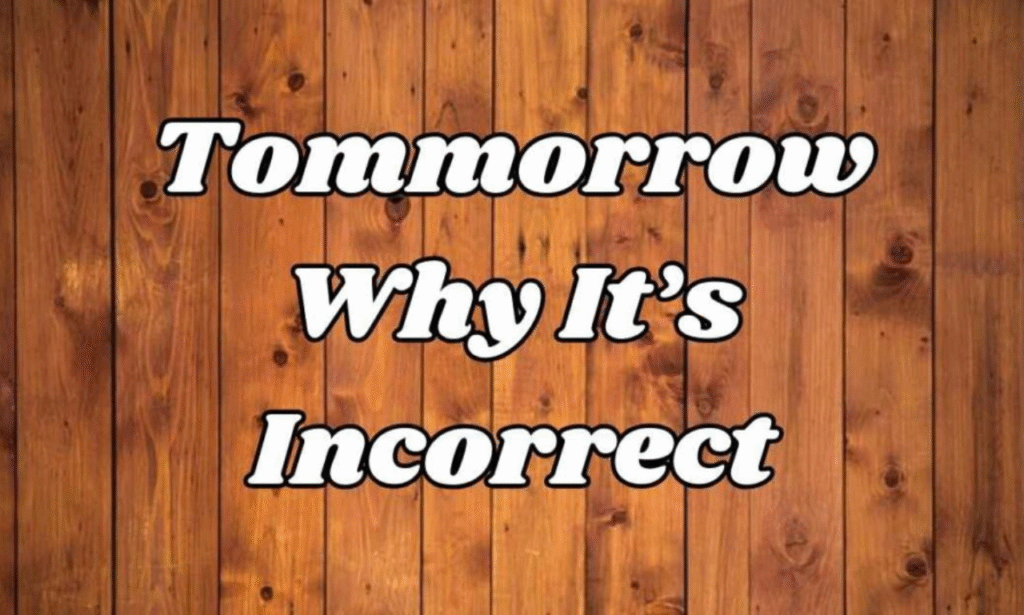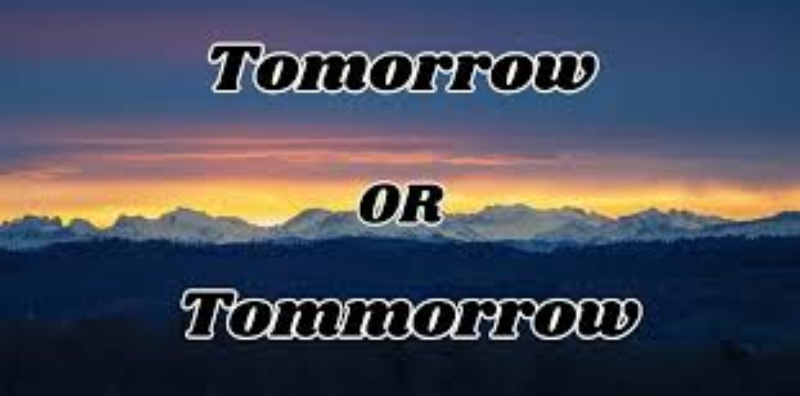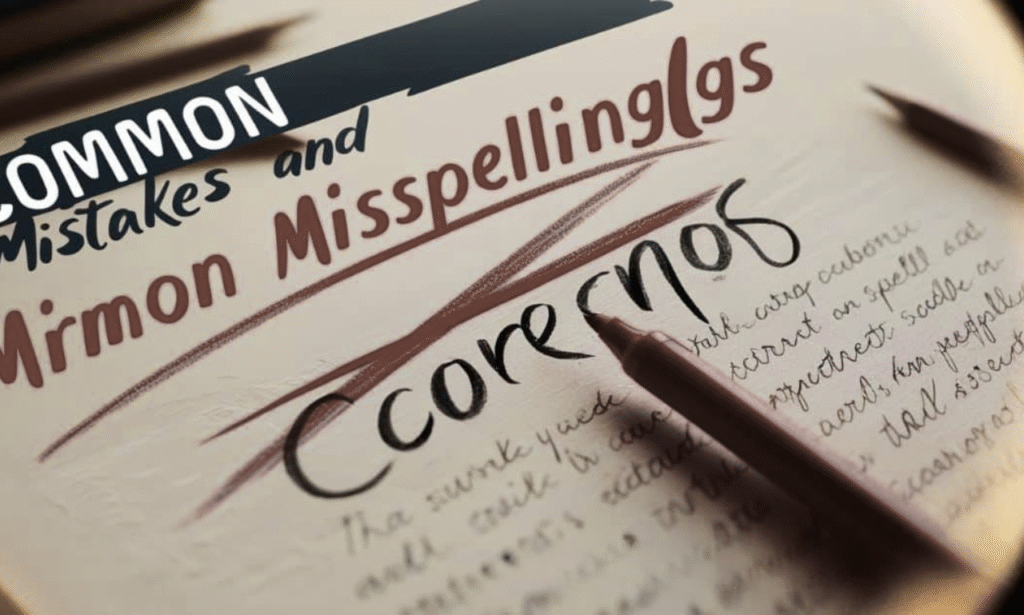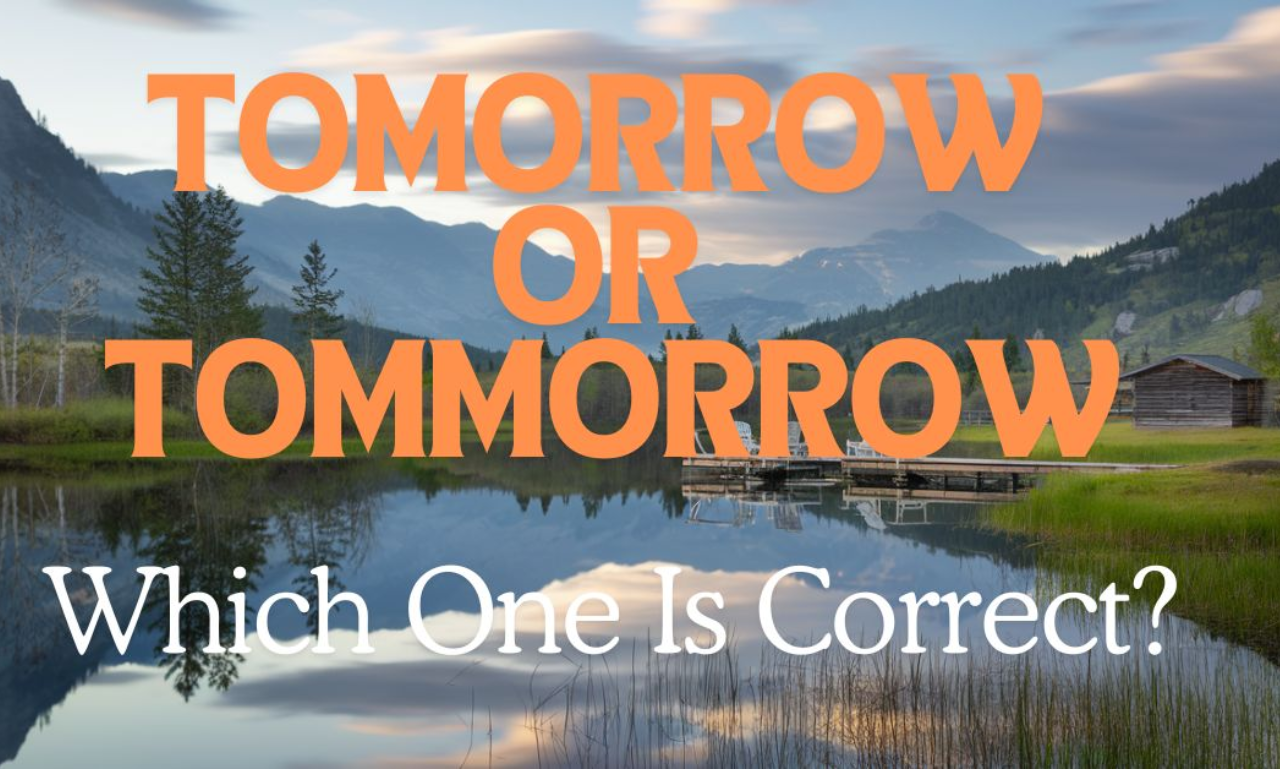When it comes to the words “Tomorrow” or “Tommorrow,” there’s really no competition , only one is correct. The right spelling, “tomorrow,” is derived from Old English, meaning “on the morrow” or “the next day.”
It’s fascinating how this simple word has stood the test of time, seamlessly integrating into our daily conversations and written communications. Yet, the misspelling “tommorrow” often pops up, perhaps due to a common typing error or a playful twist on the original.
The Correct Tomorrow Spelling
Correct Spelling of Tomorrow
If we take a look on the word “Tomorrow,” many people often stumble upon its spelling. Some might mistakenly spell it as “Tommorrow,” adding an extra ‘m’ that simply doesn’t belong. This common error can be a bit humorous, especially when you think about how a tiny typo can change the meaning of a message.
It’s fascinating how language evolves, and misspellings can sometimes even lead to new interpretations or playful banter among friends.

Origin of the Word Tomorrow
The word “tomorrow” has a fascinating lineage that dates back to Old English. It comes from the compound term “to morrow,” which literally translates to “the day after today.
This simple yet profound construction captures a universal human experience: the anticipation of what lies ahead. Interestingly, the word reflects not just a measure of time, but also a sense of hope and possibility, as it embodies the promise of new beginnings and fresh opportunities.
Common Usage
When it explain the word “Tomorrow” holds a special place in our daily conversations. It’s not just a marker of time; it symbolizes hope, anticipation, and sometimes even procrastination.
Many people find themselves saying, “I’ll start that project tomorrow,” as if the mere mention of the next day carries the promise of motivation. However, this casual phrase can also be a double-edged sword, as it can lead to a cycle of putting things off indefinitely.
Tommorrow: Why It’s Incorrect
Let’s talk about the word “tomorrow.” Many people often misspell it as “tommorrow.” But why is that not right? It’s important to get the spelling correct so we can communicate clearly. So, let’s break it down and understand what makes “tomorrow” the right way to spell it!

Why Do People Misspell Tomorrow Vs Tommorrow?
There are a number of reasons why this mistake happens often:
1. Tone and writing style: Keep it simple and easy to understand.
Remember, whether it’s tomorrow or tommorrow, clarity is key!
- Sound Mix-Up: When you say “tomorrow,” the double “m” might seem normal. Typing Mistakes: When you’re typing quickly, you might accidentally hit the same letter twice.
- Generalization Mistakes: Certain English words have double consonants, which can lead to confusing assumptions.
- So, when writing “tomorrow,” be careful not to accidentally spell it as “tommorrow”!
Common Mistakes and Misspellings
When it comes to common mistakes, the misspelling of “tomorrow” as “tommorrow” is a classic example that often slips through the cracks. This simple word, which signifies hope and future plans, can easily trip up even the most seasoned writers. The extra ‘m’ might seem harmless, but it can undermine the professionalism of your writing. It’s a small error that can lead to big misunderstandings, especially in a world where every word counts.
- Tomorrow: Just drops one “r” and is a common mistake.
- Tommorrow: Mixes up the letters a bit and throws in an extra “m.”
- Tomorro: Skips the last “w.”

Why Spelling Matters
Spelling might seem like a trivial detail in our fast-paced digital world, but it holds more weight than we often realize. Take the word “tomorrow,” for instance. Misspelling it as “tommorrow” not only creates confusion but can also undermine your credibility. In professional settings, clear communication is key, and a simple typo can lead others to question your attention to detail or even your expertise.
Origins and Breakdown of “Tomorrow”
The word “tomorrow” carries with it a sense of hope and anticipation, yet its origins are steeped in history. Tracing back to Old English, “tomorrow” comes from “to-morgen,” which literally means “the morning after.” This etymology hints at a fascinating perspective: tomorrow isn’t just a day; it’s a bridge connecting our past actions to future possibilities. This duality reflects our natural inclination to look ahead, often fueled by dreams and aspirations that keep us motivated.
Historical Usage
Throughout history, the concept of “tomorrow” has held a unique place in various cultures and philosophies. In ancient civilizations, the idea of time was often cyclical, with tomorrow representing not just a new day but a fresh opportunity for renewal. For instance, the Mayans had a profound understanding of time’s fluidity, seeing tomorrow as a continuation of cosmic cycles rather than merely the next day on a calendar.
Memory Aids and Tricks for Correct Spelling
When it comes to spelling tricky words like “tomorrow,” memory aids can make all the difference. One effective trick is to break the word down into smaller parts: think of it as “to-mor-row.” This way, you can visualize the components rather than trying to memorize the entire word at once.
Another clever method involves creating a simple rhyme or a phrase. For instance, “I will see you tomorrow, not with an extra ‘m’ in sorrow.” This catchy line not only helps you remember the correct spelling but also adds a touch of fun to your learning process.
Auto-Correct and Spell-Check Limitations
Auto-correct and spell-check tools are often our digital safety nets, but they can also lead to humorous blunders and miscommunications. Take the common mix-up between “tomorrow” and “tommorrow,” for instance.
While one is a simple slip, the other could send your friends into a whirlwind of confusion, wondering if you’ve suddenly developed a penchant for creative spelling. These tools can miss context entirely, correcting words based on frequency rather than meaning. So, while you might intend to assure someone about plans for tomorrow, auto-correct might decide you’re talking about something entirely different.
Conclusion:
To wrap things up about “Tomorrow” or “Tommorrow,” “tomorrow” is the only correct spelling for the day after today. While “tommorrow” might seem tempting, it’s simply not how we write it.
By understanding these small details, you can enhance your writing and communicate more effectively. Don’t let a simple misspelling hold you back ,practice makes perfect! So go ahead and share your newfound knowledge with others, and let’s all spell it right together!
FAQ:
Which one is correct, tomorrow or tommorrow?
The correct spelling is “tomorrow,” with one “m” and two “r’s.” It can be a bit tricky since it’s a word we use often, but that extra “m” is definitely a common mistake. So, if you ever find yourself unsure, just remember it’s “tomorrow” when you’re talking about the day after today!
What is the meaning of tomorrow?
Tomorrow refers to the day that comes after today. It’s often seen as a symbol of hope and new beginnings. While today is all about the present moment, tomorrow gives us something to look forward to — whether it’s plans we’ve made, goals we want to achieve, or simply the chance to start fresh.
Does tomorrow have one M or two?
Tomorrow has two M’s! It can be a bit tricky since it sounds like it could have just one, but when you write it out, you’ll see there are indeed two M’s in the word.

